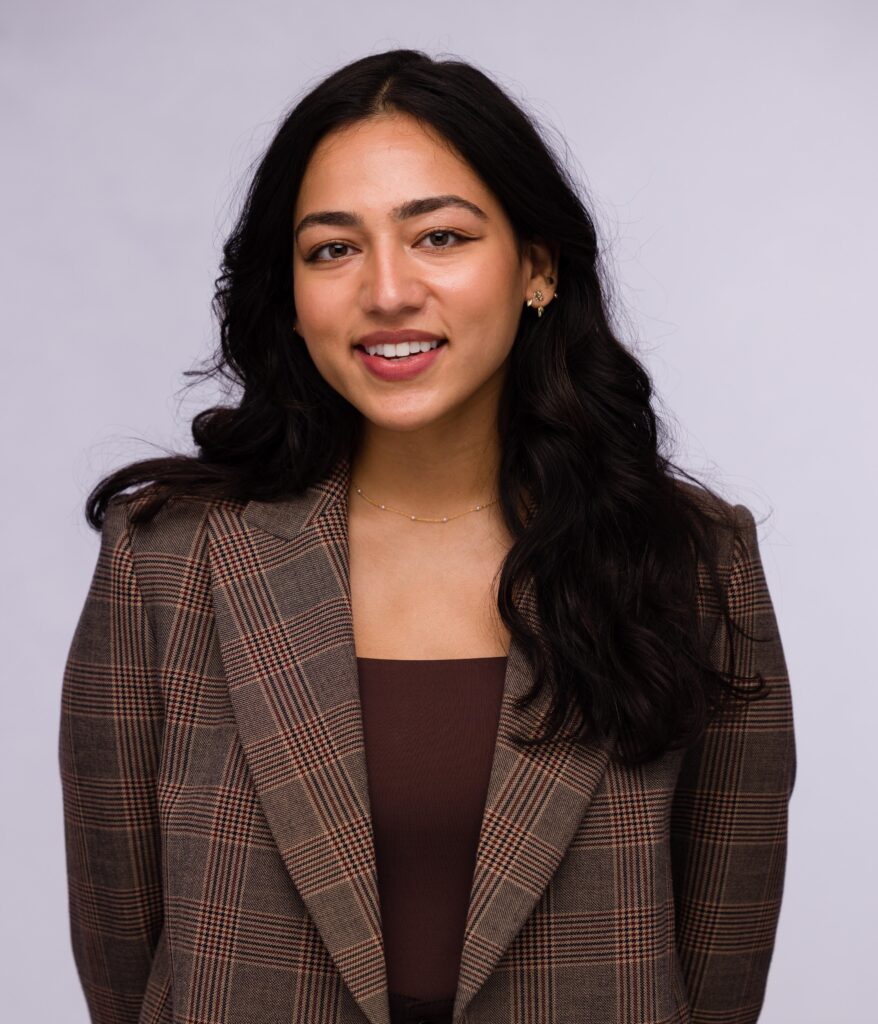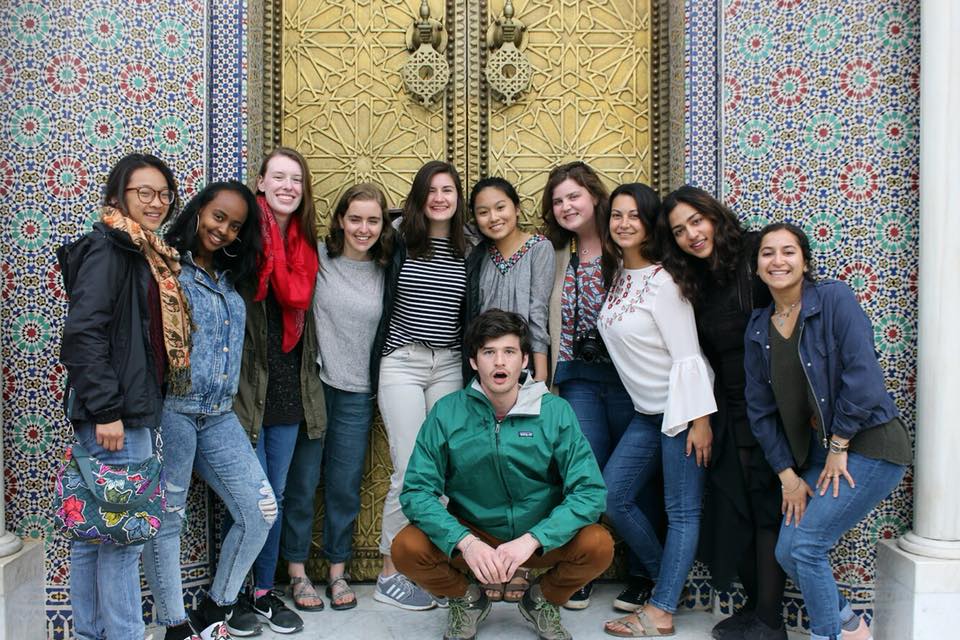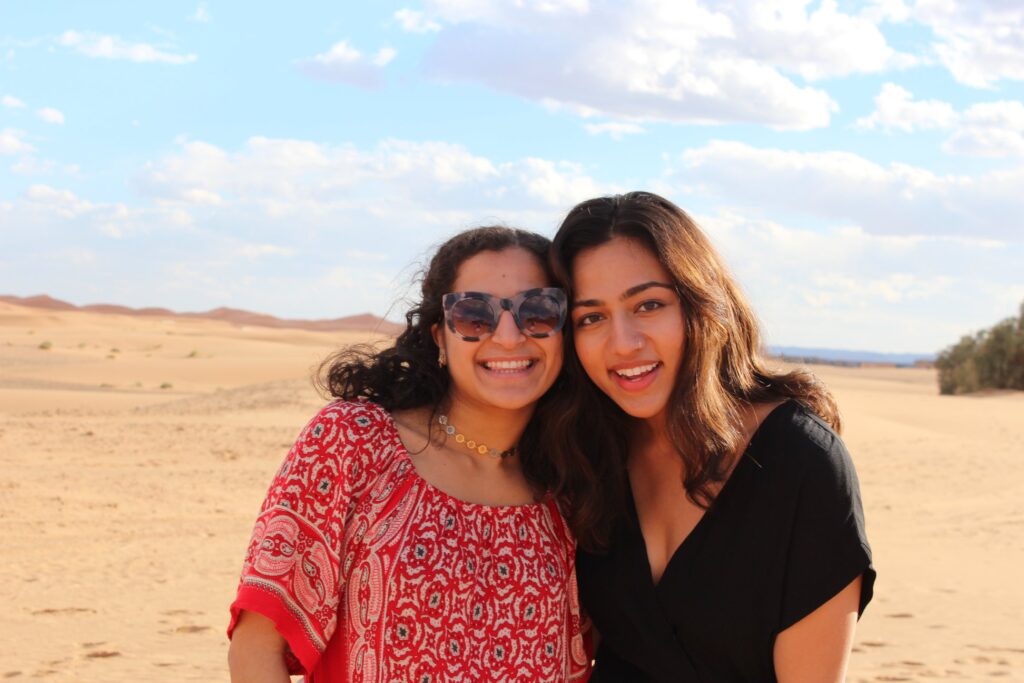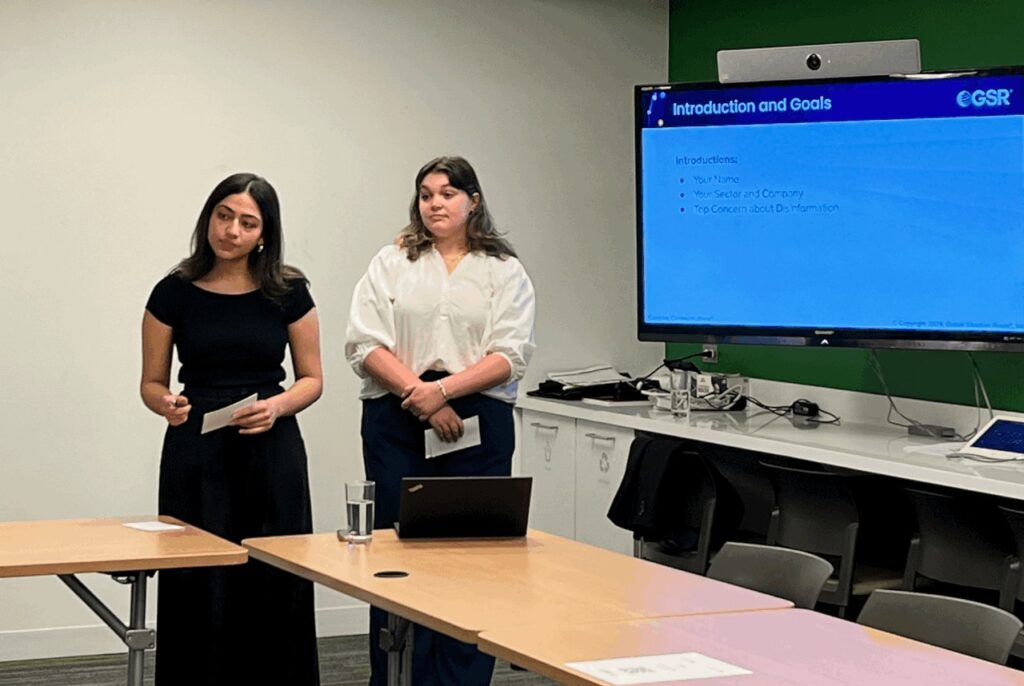SIT alum Mahnoor Haq provides media expertise to Balkan content creators
April 9th, 2024 | Alumni, Careers, SIT Study Abroad
By Mariama Dumbuya

We recently met with SIT alum Mahnoor Haq, who was a presenter in February for a Leaders Lead On-Demand (LLOD) program implemented by World Learning.
Haq, a senior communications associate for the communications firm Global Situation Room, presented with two colleagues on disinformation, social media, and artificial intelligence to a group of digital content creators from the Balkans. The group was in the United States for two weeks as part of LLOD’s Balkan Digital Content Creators program, which explored digital communication strategies and challenges and helped the participants build professional networks with other media experts.
Haq shared about her educational background, how her time with SIT Morocco impacted her professionally, and her work with World Learning.
What is your educational background?
I completed my undergraduate degree at Wofford College, a small liberal arts college in South Carolina. I majored in history with minors in religion, Arabic, and the Middle East and North Africa region.
I always had a wide variety of interests and wanted to pursue many different fields, but there wasn't a major for everything I studied at that point. Because of these gaps in the programming, I went out of my way to supplement that programming.
I served as president of the Muslim Student Association, and my work involved identifying what I thought was missing from the curriculum. After completing my undergraduate program, I pursued my master's at Georgetown University in conflict resolution, something I hoped would combine my different interests.
Can you tell us about your experience with SIT Study Abroad?
When I was an undergraduate, I participated in Morocco: Multiculturalism and Human Rights [today called SIT Morocco: Human Rights, Social Justice, and Cultural Transformation]. We were based in Rabat and explored different cities, including Fez and Marrakesh. We were able to see the beauty of the Atlas Mountains and the Sahara Desert.

I wanted to live in a country where they spoke Arabic. We had a long period every day for Arabic classes, and there was always a functional element. For example, we would go to a cafe and order something in Arabic. That experience puts practice in motion, and without that, your language skills can only improve so much.
I really appreciated the setup of the program. Every week, an expert in a specific region or subject would give a lecture on their area of expertise. That was a great way of learning different subjects that was easy to digest. We had a class on the different legal codes of Morocco, and there was one on calligraphy, so there was a creative side, too.
During the final four weeks, I completed an independent study project “The Intersectionality of Quranic Interpretation and Cultural Norms on Sunni Muslim Women.” The project looked at how cultural and religious interpretations of texts impact cultural practices in specific Muslim countries and how that leads to a rise in violence against women and suppression of their rights. We were able to choose a subject that was most interesting to us and the weekly lectures helped to inform our project.
What is your current role at Global Situation Room?

After graduating from Georgetown, I started working at Global Situation Room, and I've been there for two years.
There's a podcasting side to Global Situation Room, and our studios are called Situation Room Studios. The podcast I mainly work on as a producer is One Decision, which is global affairs oriented. The podcast delves into detailed conversations with world leaders, intelligence officials, experts, and reporters on current news topics. The conversations range from the ongoing conflicts in Ukraine and Gaza to cobalt mining in the Democratic Republic of the Congo. One of the highlights of working on the podcast has been traveling to New York for the United Nations General Assembly for two years in a row.
I am involved in booking guests, including President Osmani of Kosovo. We've also had former U.K. Prime Minister Boris Johnson on the podcast and previous presidents, like Egils Levits of Latvia. We've interviewed U.S. members of Congress as well—Rep. Jim Himes from Connecticut and California Rep. Ro Khanna recently.
This role was the perfect way to combine my interests because it requires being up to date on news trends and the next story that's coming out.
What did your team speak to the Balkan digital creators about?

We gave a presentation on disinformation and misinformation in U.S. media. Our presentation focused on identifying when the media is biased. It’s important to identify when it's misinformation versus disinformation. We started by outlining the definitions of these terms that are used widely but seldom completely understood.
The case study we used was the ongoing conflict in the Middle East. We identified different media outlets and the deliberate usage of those terms meant to invoke specific reactions in readers.
We also brought up social media platforms like TikTok that are seen as more dangerous because anyone can have a large platform and speak about a number of things. There's less regulation, and it's easier for misinformation to spread. But on the other hand, it's also used for people who don't have a voice anywhere else. They're allowing audiences to get a firsthand view. People are able to get that primary source.
Can you speak about the discussion regarding artificial intelligence (AI) and its issues?
We showed how to identify an artificially generated image because that technology will keep improving. It's important to take the steps to make sure an image is real instead of blindly believing it. This situation will become worse and more difficult to identify if media professionals are not already working on those skills. With AI images, there is also a shock value. Even as that shock diminishes, that in itself makes these images more normalized.
How did your educational experiences prepare you for your current role?
My undergraduate and graduate programs and the SIT Morocco program led me to my current work. They're the perfect combination of knowing your history when it comes to many of these ongoing crises and conflicts. You can talk about them in a more informed manner because you have that historical context. Otherwise, you're seeing them in such a narrow scope.
Studying abroad and learning another language are all important skills that, regardless of what you choose to pursue, are always going to show up in some way that's beneficial for your career. My study abroad program still shows up in ways I didn't expect.
